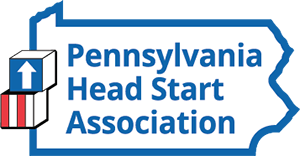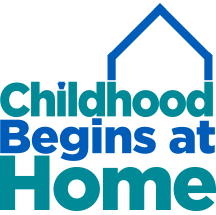
Early Head Start nurtures healthy attachments for low-income families parenting infants and toddlers, and for pregnant women and their families, through intensive comprehensive child development and family support services. Research shows this model:
Early Head Start nurtures healthy attachments for low-income families parenting infants and toddlers, and for pregnant women and their families, through intensive comprehensive child development and family support services. Research shows this model:
Improves cognitive, social, and emotional development, which enhances children’s language skills and school readiness and increases their likelihood of attending preschool or pre-k.
- Early Head Start improves child developmental status, scores on cognitive development assessments, attentiveness, and ability to engage in play. [Green, B. L., Ayoub, C., Bartlett, J. D., Furrer, C., & Chazan-Cohen, R. (2020). Pathways to Prevention: Early Head Start Outcomes in the First Three Years Lead to Long-Term Reductions in Child Maltreatment. Children and Youth Services Review, 118. https://doi.org/10.1016/j.childyouth.2020.105403]
- Early Head Start teaches positive approaches to learning, improves children’s social skills and language readiness for school, and reduces behavioral problems that could impede school achievement. [Love, J. M., Chazan-Cohen, R., Raikes, H., & Brooks-Gunn, J. (2013). What Makes a Difference: Early Head Start Evaluation Findings in a Developmental Context. Monographs of the Society for Research in Child Development, 78(1). http://doi.org/10.1111/j.1540-5834.2012.00699.x]
- Early Head Start improves language development during the toddler years and sustains language improvements through early childhood. [Douglass, A. G., Roche, K. M., Lavin, K., & Ghazarian, S. R. (2020). Longitudinal Parenting Pathways Linking Early Head Start and Kindergarten Readiness. Early Child Development and Care, 191(16), 2570-2589. https://doi.org/10.1080/03004430.2020.1725498]
- Early Head Start decreases the rate of child behavioral problems and increases daily reading, which better prepares children for transitioning into early care and education programs and Increases their likelihood of attending preschool or pre-k at ages 3 and 4. [Jones Harden, B., Chazan-Cohen, R., Raikes, H., & Vogel, C. (2012). Early Head Start Home Visitation: The Role of Implementation in Bolstering Program Benefits. Journal of Community Psychology, 40(4), 438-455. https://doi.org/10.1002/jcop.20525]
Increases childhood immunizations, decreases the prevalence of speech problems, and improves utilization of dental care among disadvantaged youth.
- Early Head Start increases children’s likelihood of being immunized and decreases the prevalence of speech problems. [Love, J. M., Chazan-Cohen, R., Raikes, H., & Brooks-Gunn, J. (2013). What Makes a Difference: Early Head Start Evaluation Findings in a Developmental Context. Monographs of the Society for Research in Child Development, 78(1). http://doi.org/10.1111/j.1540-5834.2012.00699.x]
- Early Head Start increases the likelihood of having a dental care visit of any kind as well as increases the overall number of dental care visits among low-income children younger than 3 years old. [Burgette, J. M., Preisser, J. S., Jr, Weinberger, M., & King, R. S. (2017). Impact of Early Head Start in North Carolina on Dental Care Use Among Children Younger Than 3 Years. American Journal of Public Health, 107(4), 614-620. https://doi.org/10.2105/AJPH.2016.303621]
Expands parent ability to respond appropriately to their children’s emotional and physical needs, which improves parent-child interactions and parent approaches to learning, and lowers parenting related distress and family conflict.
- Early Head Start improves parenting behaviors and family well-being by teaching emotionally responsive parenting, leading to later reductions in the likelihood of children being involved with the child welfare system. [Green, B. L., Ayoub, C., Bartlett, J. D., Furrer, C., & Chazan-Cohen, R. (2020). Pathways to Prevention: Early Head Start Outcomes in the First Three Years Lead to Long-Term Reductions in Child Maltreatment. Children and Youth Services Review, 118. https://doi.org/10.1016/j.childyouth.2020.105403]
- Early Head Start increases responsive parenting by facilitating parent ability to respond appropriately to their children’s emotional and physical needs. [Douglass, A. G., Roche, K. M., Lavin, K., & Ghazarian, S. R. (2020). Longitudinal Parenting Pathways Linking Early Head Start and Kindergarten Readiness. Early Child Development and Care, 191(16), 2570-2589. https://doi.org/10.1080/03004430.2020.1725498]
- Early Head Start lowers parental distress, family conflict, and maternal depression scores. [Love, J. M., Chazan-Cohen, R., Raikes, H., & Brooks-Gunn, J. (2013). What Makes a Difference: Early Head Start Evaluation Findings in a Developmental Context. Monographs of the Society for Research in Child Development, 78(1). http://doi.org/10.1111/j.1540-5834.2012.00699.x]
- Early Head Start improves parenting behaviors through education focused on optimal relationships, healthy functioning, and stress relief. [McKelvey, L., Schiffman, R. F., Brophy-Herb, H. E., & Bocknek, E. L. (2015). Examining Long-Term Effects of an Infant Mental Health Home-Based Early Head Start Program on Strengths and Resilience. Infant Mental Health Journal, 36(4), 353-365. https://doi.org/10.1002/imhj.21518]
- Early Head Start improves parent-child interactions and parent approaches to learning, increases rates of parents teaching activities with their children, and reduces parenting-related distress. [Jones Harden, B., Chazan-Cohen, R., Raikes, H., & Vogel, C. (2012). Early Head Start Home Visitation: The Role of Implementation in Bolstering Program Benefits. Journal of Community Psychology, 40(4), 438-455. https://doi.org/10.1002/jcop.20525]
Early Head Start serves families in 48 counties.
